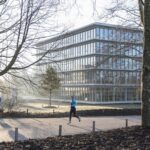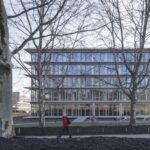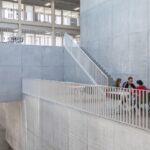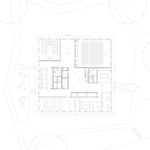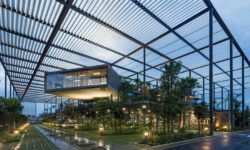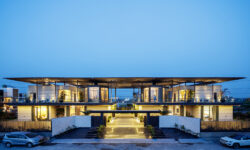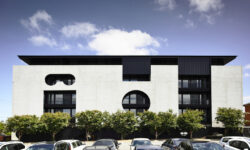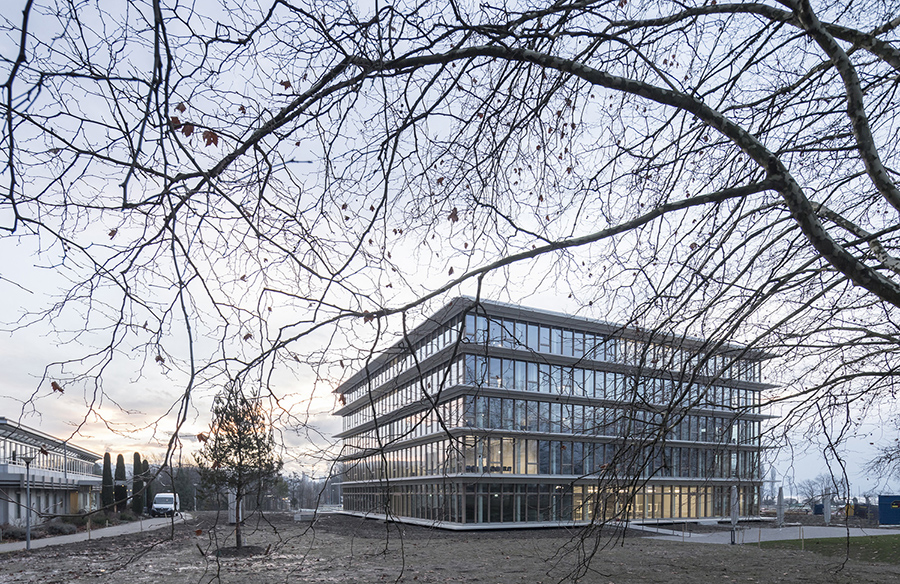
The International Sports Sciences Institute, designed by Karamuk Kuo, stands as a beacon of innovation and collaboration on the University of Lausanne campus. Bringing together four public and private institutions, this compact yet dynamic structure serves as a hub for research and teaching in sports science. Despite its unassuming exterior, the building pulsates with activity and fosters an environment of exchange and cooperation.
Multifunctional Design Approach
The architectural design of the institute embodies efficiency and functionality, with each component serving multiple purposes. At its core lies a sculptural structure that not only provides structural support but also houses physical testing labs and services, all while creating terraced landscapes for communal use. Visual transparency and ample daylight infuse these spaces with vitality, encouraging informal interactions and collaborative work.
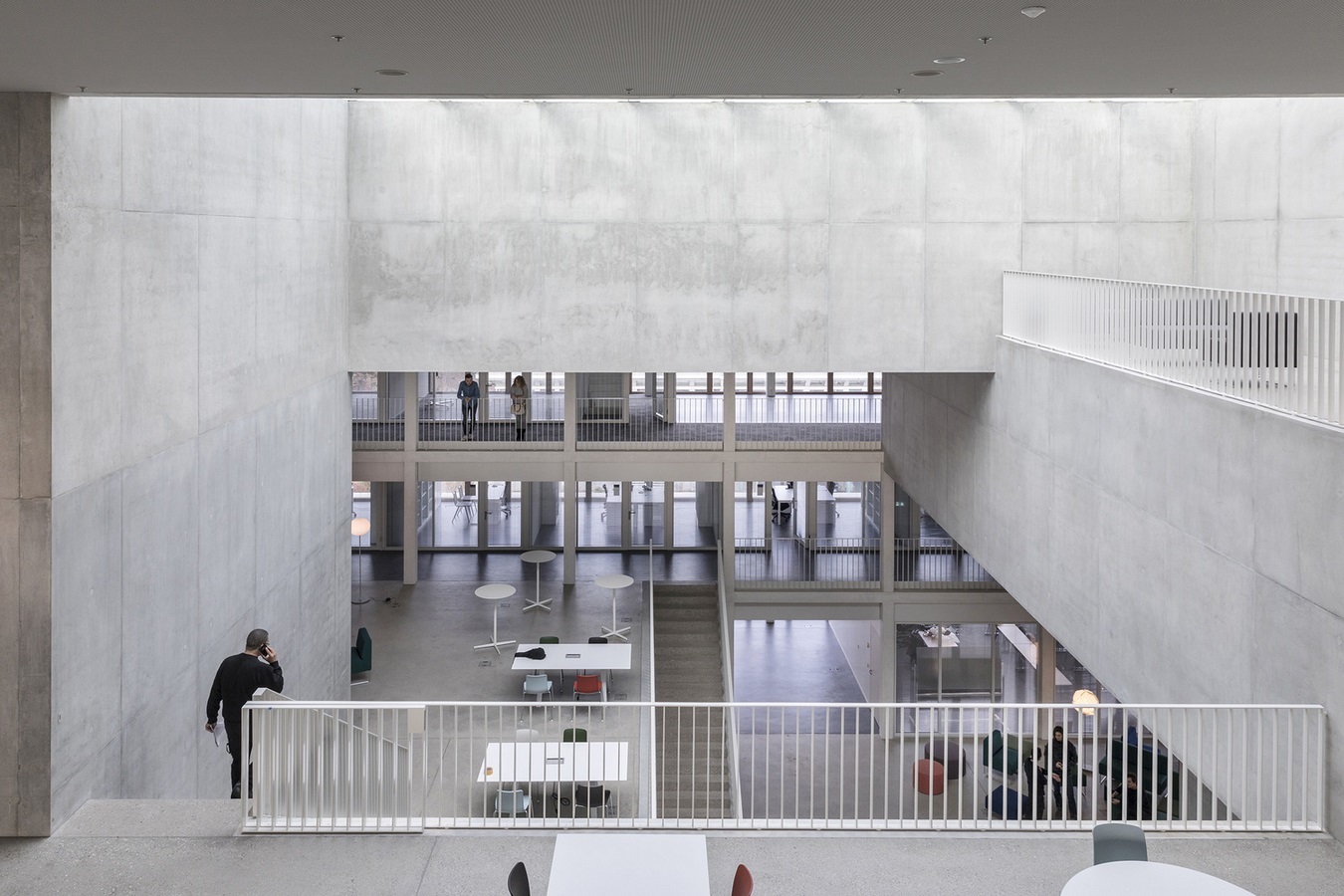
Flexible Workspaces
Surrounding the central atrium is a flexible ring of offices, designed to accommodate the diverse needs of each institution. Lightweight partitions enable easy reconfiguration, allowing for various office layouts and meeting spaces while ensuring privacy for each organization. What may seem like a simple building at first glance unfolds into a nuanced environment that caters to a range of user preferences, from intimate settings to larger communal areas.
Sustainable Solutions
Embracing both low and high-tech solutions, the institute strives to meet eco-sustainable standards without compromising on performance. It boasts Minergie-P certification and is the first building to receive the SméO certification. Utilizing thermally-activated slabs powered by renewable lake water and incorporating natural ventilation systems, the building maintains year-round comfort with minimal energy consumption.
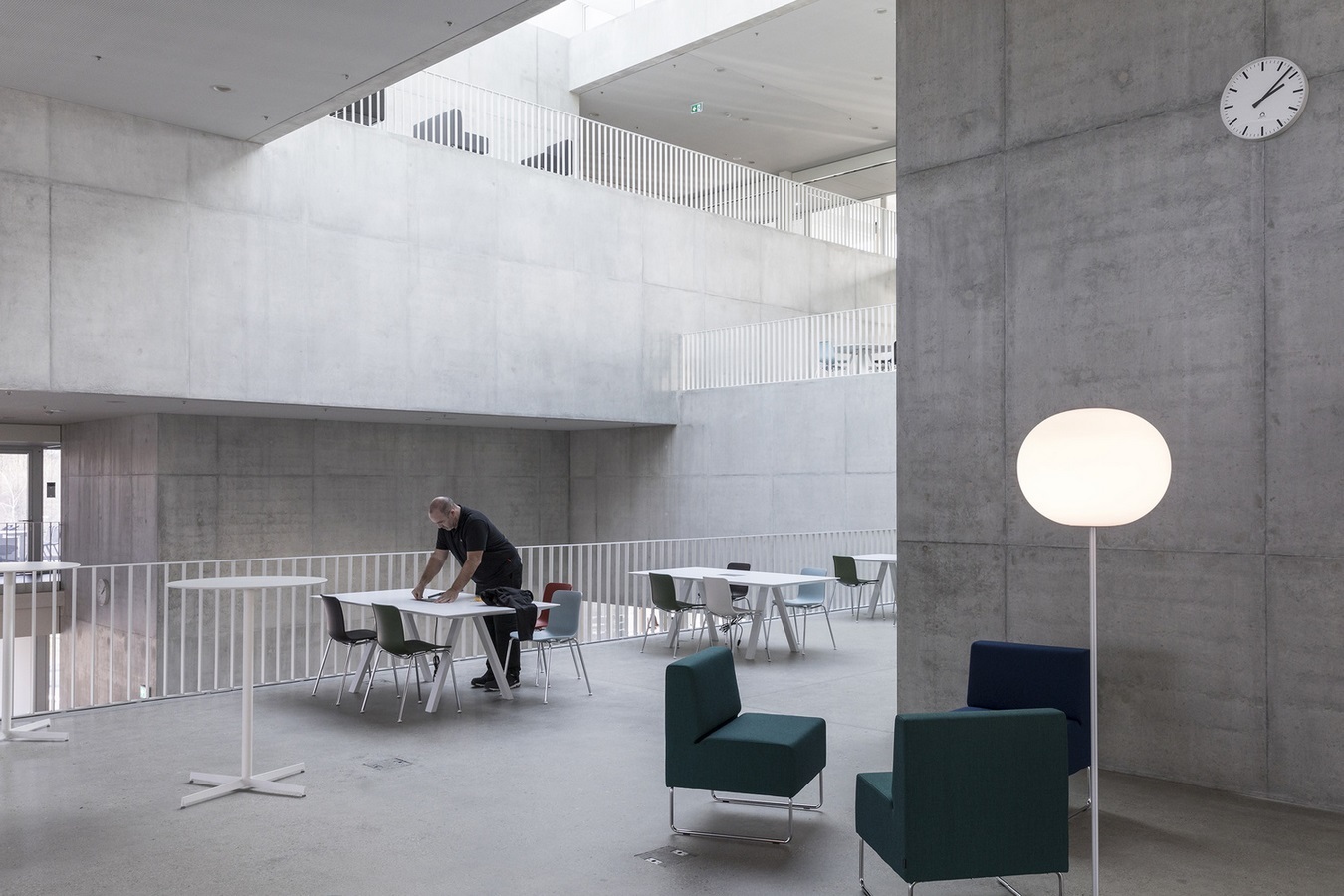
Environmental Consciousness and Performance
The design prioritizes environmental consciousness and resource efficiency, with 70% of the concrete being recycled and many materials sourced locally to reduce the carbon footprint. This emphasis on economy of means results in a highly performative yet cost-effective building, exemplifying a harmonious blend of sustainability and functionality.
Through its innovative design and commitment to sustainability, the International Sports Sciences Institute sets a new standard for collaborative research and education in the field of sports science.











